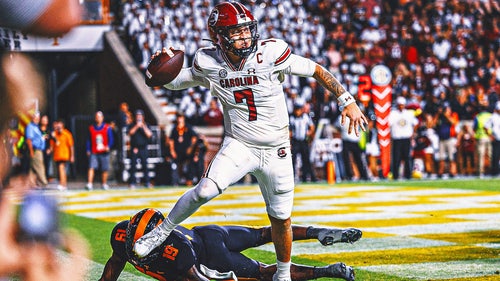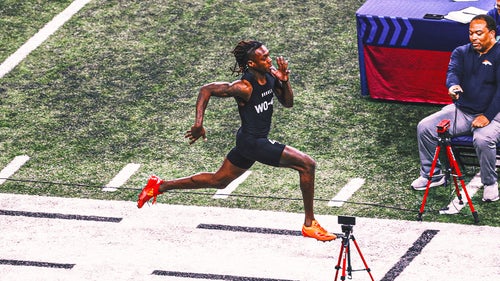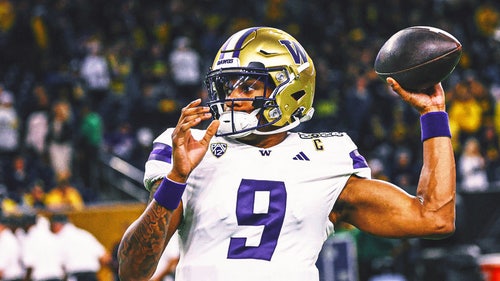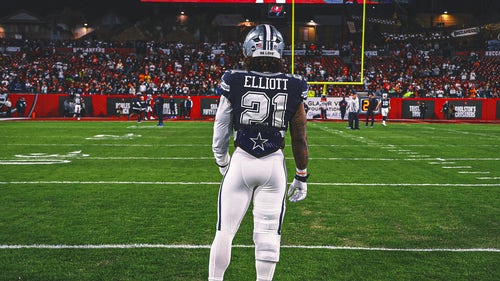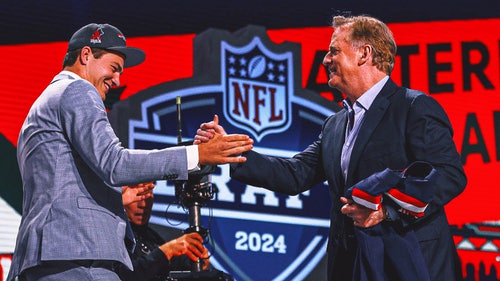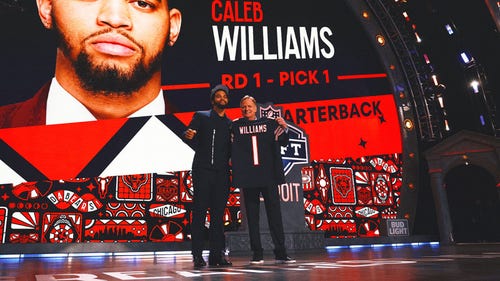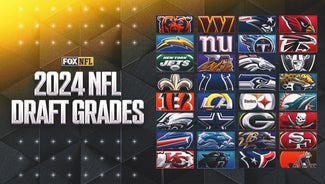
Tagliabue recalls his 9/11 experience
Everyone was somewhere when normal gave way to 9/11. Paul Tagliabue, then the commissioner of the National Football League, was in his office, his television on but the volume off, a conference call with the United Way having started at exactly 9 o'clock that morning.
This was normal: the important phone calls kicking off the day’s pre-set schedule that included a senior staff meeting, a New York Times luncheon and, later, a dinner at New York’s famous 21 Club.
“At some point we got the first flashes that a plane had hit the World Trade Center,” Tagliabue said Friday. “And my assistant came in and was hysterical, having heard the news and having been on the streets where the news was flashing around.”
It took three minutes for normal to vanish. Three minutes for the magnitude of the moment to set in, and then for Tagliabue and the league he led to wrestle with it all — with the grief and the death, with the stress and the fear, with the need for America to move on and with the question of just what small role a professional football league should play in helping that happen.
At 9:03, 180 seconds after that very normal conference call began, United Airlines Flight 175 from Boston to Los Angeles crashed into the South Tower.
“That was the end of the conference call,” Tagliabue said.
That was the end of a lot. That was the moment when one American era gave way to another. In that transition, among the dust and grit and destruction, were thousands of people and organizations wrestling with what to do now.
That included the NFL, and for that organization the great looming question would be this: To play games five days later, or to not play them.
But first, order had to be conjured from the madness. Forty-three minutes after that conference call had started American Airlines Flight 77 crashed into the Pentagon. Twenty minutes after that the South Tower collapsed. The North Tower followed a short time later.
At the NFL’s offices, as everywhere, there was bedlam. Staffers started heading downtown, desperate to find their loved ones. Two never would. An attorney lost his wife, and a woman from the marketing department her husband. The grief had just begun.
The day slid by, a fog of fear and preparations and unanswered questions. By the time the commissioner left, it was clear everything had changed.
“I remember walking home, about a mile away, and as I walked home there was just this incredible grit, smoke stench throughout the city from the hundreds of thousands of gallons of fuel that had been dumped on the buildings and burned,” Tagliabue said. “It was a striking and fearsome situation.”
By now, Tagliabue had begun to grapple with what to do about the weekend’s slate of football games. The decision would not be easy. Tagliabue had known former NFL commissioner Pete Rozelle well. Years earlier, under the haze of another American tragedy, Rozelle had decided the NFL would play all of its games just two days after John F. Kennedy was assassinated. He would later see that choice as one of his most grievous mistakes.
“I knew how he felt about it,” Tagliabue said. “I knew he had spoken to people in the White House who he knew (who said to play the games). And we checked with people in the White House and they basically said you need to make a decision for yourself. We can’t make decisions for everybody in America.”
Tagliabue is a big believer that private institutions — including the NFL — have a duty to help their country respond properly in times of tumult. For him, the call on whether or not to play games after the attacks was as much about what was right for the country as it was what was right for the NFL.
“The private sector has to be responsible also for setting the tone, avoiding paralysis and bringing the public along and in having a sense of clarity and a focus in moving forward,” he said.
So the question remained: Would there be games?
A consensus grew in the office to cancel them, but the feeling was not universal. Some saw canceling or postponing even a single game as tantamount to another victory for the terrorists.
“There were people who said you couldn’t capitulate,” he said. “That whoever the adversary was if you threw up your hands and stopped doing what you were doing it would be viewed as you were intimidated, you were cowed, you were capitulating. And no one wanted to be viewed that way.”
Still, it was one thing to be far away and another to walk into the smoke and grit and smell the destruction, to choke on it every time you walked out into your city, and to decide to let normal stand.
Tagliabue made up his mind. “We had to pause and make sure everyone had our priorities straight, make sure we understood how unified we needed to be, understand where we were at.”
From the beginning, Tagliabue said, he and NFLPA executive director Gene Upshaw saw eye-to-eye on the matter. But others still pushed back, so much so that Tagliabue said he finally settled it this way: I’m doing it. And that’s that.
“I said, ‘I don’t have to take a vote of the owners. I have the authority in extraordinary circumstances to make this decision and I’m going to do it.’”
Almost exactly 48 hours after the North Tower collapsed, it was official. There would be no NFL games that week.
It would not be until Sept. 23 that the games would resume, including in Kansas City, where the Chiefs hosted the Giants. Tagliabue was there, and as he waited for the game to start he wondered what would happen.
Had waiting — had that week off — given the NFL a chance to help its country to move forward, in some small way?
“You didn’t know when the teams took the field if it would be a somber cloud of tragedy over the entire situation or whether there would be this vocal support for the people of New York,” he said.
Normal was gone. But this time it would take less than three minutes to see what had replaced it. Because the moment the Giants ran onto the filed, the people of Kansas City — all of Arrowhead Stadium — gave a loud, raucous, emotional ovation to the opposing team.
Tagliabue was stunned. People cried. Players knew this moment was different. And the NFL, perhaps by waiting, had given its fans enough time to turn a football game in the heartland into so much more.
You can follow Bill Reiter on Twitter or email him at foxsportsreiter@gmail.com.






































































































































